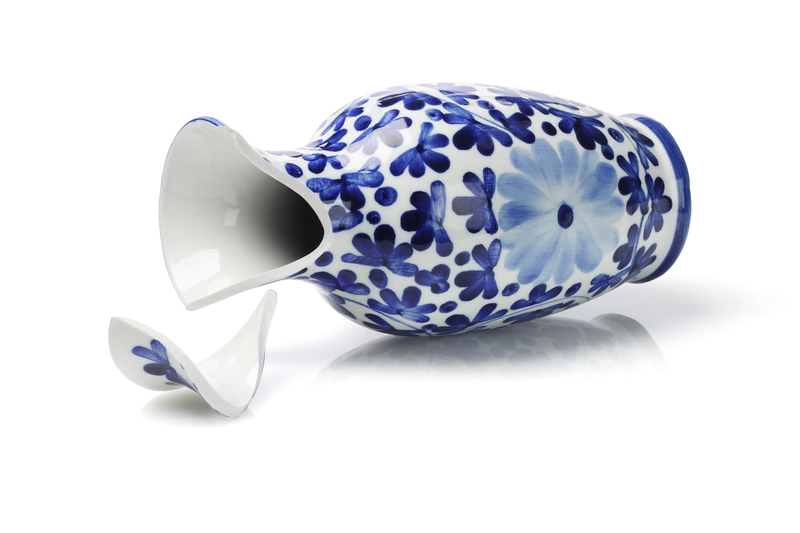Making Moving Easier by Decluttering Your Space
Posted on 21/05/2025
Making Moving Easier by Decluttering Your Space
Moving to a new home can be as exciting as it is stressful. One of the most effective ways to reduce the chaos and hassle associated with relocation is to declutter your space first. Whether you are relocating across town or into a new country, streamlining your belongings before the moving day can save you time, energy, and even money. In this comprehensive guide, you'll discover how decluttering before a move paves the way for a smoother transition and what actionable steps you can take right now to make your move easier.

Why Decluttering Makes Moving Easier
Decluttering before moving is more than just a trendy tip--it's a proven strategy for reducing the workload, costs, and emotional weight of relocation. Here's why:
- Less to Pack and Unpack: Every item you eliminate before the move is one less thing to box up, transport, and reorganize at your new address.
- Lower Moving Costs: Most moving companies charge by weight or volume. Fewer belongings mean fewer boxes and a cheaper bill.
- Easier Organization: Arriving at your new place with only what you truly need helps you set up more efficiently and enjoy a clutter-free fresh start.
- Reduced Stress Level: Minimizing your possessions makes the entire moving process less overwhelming and emotionally draining.
The Emotional Benefits of Decluttering
Letting go of items you no longer need brings emotional relief as well. Clutter can weigh on your mind and even stir up anxiety. Decluttering gives you a sense of accomplishment and control, allowing you to welcome new opportunities without the burden of unwanted items.
Practical Steps to Declutter Before Moving
Making moving easier by decluttering your space starts with the right approach. Here's a step-by-step process to help you sort, select, and slim down your belongings:
1. Start Early
The earlier you begin, the less rushed and stressful the decluttering process will be. Aim to start at least a month before your moving date, especially if you have a large home or many possessions.
2. Create a Decluttering Plan
- Room-by-Room: Focus on one area at a time, such as your kitchen, bedrooms, living room, or garage.
- Category-by-Category: Go through clothing, books, kitchenware, electronics, and paperwork separately.
Make a checklist or use a printable decluttering planner to stay organized throughout the process.
3. Sort Your Belongings
Work through each room or category and divide your things into clear piles:
- Keep: Items you use regularly or that have significant sentimental value.
- Donate/Sell: Gently used goods that could benefit others.
- Recycle: Papers, electronics, or plastics that can be recycled.
- Trash: Broken or unusable items.
Pro Tip: Use color-coded bins or labels to make sorting quick and easy.
4. Begin with the Easy Stuff
Start your decluttering journey with areas that are usually filled with excess or little-used items, such as:
- Junk drawers
- Seasonal clothing
- Old paperwork
- Unused cleaning supplies
Getting quick wins early can build momentum and motivate you to move forward.
5. Ask the Right Questions
When you're unsure about keeping something, consider these questions:
- Have I used this in the last year?
- Does it have a place in my new home?
- Would I buy this again?
- Does it spark joy or serve a vital function?
6. Sell, Donate, or Recycle Responsibly
Once you've sorted out what to let go of, decide the best way to clear them out:
- Sell: Use online marketplaces, garage sales, or local consignment shops for valuable items.
- Donate: Local charities, shelters, or thrift stores often welcome donations, especially furniture, clothing, and kitchen supplies.
- Recycle: Research recycling options for electronics, batteries, and hazardous household items to ensure environmentally safe disposal.
- Trash: Dispose of broken or unsafe items following your city's waste management guidelines.
Tips for Making Your Move Easier with Decluttering
Optimize Packing
- Pack Smart: Only pack what you truly need and use. This reduces the time spent packing and unpacking, and helps avoid filling your new home with unwanted clutter.
- Use Clear Labels: Label boxes by room and category, so you know exactly where everything belongs. This will also speed up the unpacking process in your new space.
Plan Your New Space
Visualize your new home layout and consider how your belongings will fit. Sometimes, the floor plan or storage options in the new place will naturally limit what you should bring. Make a list of essential furniture and must-have items for each room, and leave the rest behind.
Set Aside Essentials
- Moving Day Bag: Pack a suitcase or bag with everyday essentials--clothes, toiletries, important documents, medications, chargers, snacks--for easy access on moving day and your first night in the new home.
Enlist Help
Ask family members or friends to help sort through items, especially in shared spaces. Consider hiring a professional organizer if you have a lot of clutter or feel overwhelmed. They can provide expert advice and an objective perspective.
Utilize Storage Solutions
If you are pressed for time or are transitioning into a smaller space, consider renting a short-term storage unit. This gives you flexibility to further pare down your belongings once you've settled in.
Room-by-Room Decluttering Checklist for Moving
Living Room
- Sort through books, magazines, and DVDs--donate or sell what you no longer enjoy
- Review electronics and cords--recycle or dispose of obsolete devices
- Evaluate furniture--only keep what fits and works for your new living space
Kitchen
- Check dishes, cookware, and utensils--donate duplicates or items you rarely use
- Dispose of expired pantry items and half-used condiments
- Pair down small appliances--keep only the ones you use frequently
Bedroom
- Go through clothes by season--donate what doesn't fit or hasn't been worn
- Review linens and bedding--keep two sets per bed, and donate extras
- Sort through shoes and accessories--minimize to essentials
Bathroom
- Dispose of expired or unused toiletries and cosmetics
- Limit towels to two per person
- Clear out medicine cabinets--safely discard expired medication
Garage, Basement, or Shed
- Sort tools and gardening supplies--keep only what you use
- Donate, sell, or recycle old sports equipment
- Dispose of broken or duplicate seasonal decorations
Common Obstacles and How to Overcome Them
Decluttering before moving isn't always easy. Many people encounter emotional and practical challenges along the way. Here's how to handle them:
- Sentimental Attachments: It's normal to struggle with items that have emotional significance. Take photos of cherished pieces or pass them on to loved ones who will appreciate them. Remember, memories aren't in the object, but in your experiences.
- Procrastination: Set a timer for 20 minutes and focus on just one area. Small steps can quickly add up to significant progress.
- 'Just in Case' Mentality: Ask yourself how likely you are to use the item in the next year. Be honest to avoid unnecessary packing.
- Family Disagreements: If family members are hesitant to let go, have open conversations about the benefits of decluttering and create a compromise for shared items.
Decluttering with Kids or Pets
If you're making moving easier by decluttering your space with kids or pets around, involve them in the process:
- Children: Turn organizing into a game, allowing them to choose toys or clothes to keep or donate. Explain how their donations can help other families.
- Pets: Sort through pet supplies and keep only regularly used beds, toys, leashes, and feeding items.
Eco-Friendly Decluttering
As you work on minimizing clutter, aim to reduce, reuse, and recycle wherever possible:
- Donate gently used items to local charities, shelters, or schools
- Recycle electronics, batteries, and hazardous items through specialized programs
- Compost or recycle expired pantry items (if possible)
- Host a neighborhood swap or garage sale
Eco-friendly decluttering ensures that your move has a lower environmental impact and supports your community.

Frequently Asked Questions about Moving and Decluttering
How much time should I allow for decluttering before a move?
Ideally, start 4-6 weeks before your moving date. If you have a small home, you may need less time. Larger homes or more cluttered spaces may require more planning and effort.
Should I declutter everything at once?
No. Decluttering gradually, either by room or by category, is more manageable and less overwhelming. Set daily or weekly goals and celebrate your progress.
What is the best way to deal with items of sentimental value?
Limit your collection to a small box of truly precious items. Photograph mementos that are too large or impractical to keep. Passing them on to family members can also help preserve their significance.
How do I know what I'll need in my new home?
Tour your new space (virtually or in person), note room sizes and storage options, and compare it to your current belongings. Take only what you'll use and love in your new environment.
Conclusion: Your New Start Begins with Decluttering
Making moving easier by decluttering your space isn't just about lightening the load for moving day. It's about starting your next chapter feeling organized, refreshed, and ready for new opportunities. By letting go of the unnecessary and keeping only what adds value, you simplify your move and enjoy a cleaner, happier living environment.
Begin the decluttering process today, and make your move -- and your life -- a whole lot easier.
Remember: Decluttering is an investment in your future happiness and peace of mind. Happy moving!
Latest Posts
How to Store a Freezer for Optimal Longevity
Transform Your Moving Experience with Expert Packing Hacks
Achieve a Calm and Effortless House Transfer










